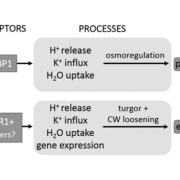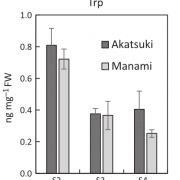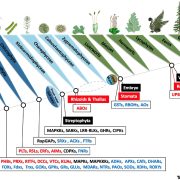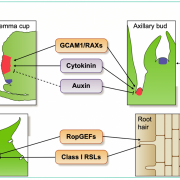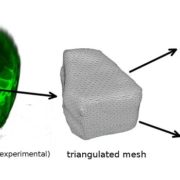Brassinosteroid signaling-dependent root responses to prolonged elevated ambient temperature
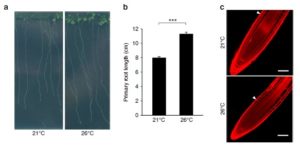 Temperature is one of the major factors affecting plant growth and development. Martins et al. showed that elevated temperature increases root growth through elongated cell size, but reduced both meristem size and number of meristematic cells. The elongation of root growth during elevated temperature is independent of auxin and confirmed through the study of auxin mutants, response markers, and whole genome-wide mRNA-seq analysis. In contrast, the brassinosteroid signaling component BRI1 acts as a negative regulator during high temperature-mediated root growth elongation. Interestingly, high temperature doesn’t alter BRI1 transcripts level, but downregulates in protein level. The down-regulation of BRI1 in high temperature in controlled through post-translational modification, more precisely ubiquitination. Nature Comms. 10.1038/s41467-017-00355-4
Temperature is one of the major factors affecting plant growth and development. Martins et al. showed that elevated temperature increases root growth through elongated cell size, but reduced both meristem size and number of meristematic cells. The elongation of root growth during elevated temperature is independent of auxin and confirmed through the study of auxin mutants, response markers, and whole genome-wide mRNA-seq analysis. In contrast, the brassinosteroid signaling component BRI1 acts as a negative regulator during high temperature-mediated root growth elongation. Interestingly, high temperature doesn’t alter BRI1 transcripts level, but downregulates in protein level. The down-regulation of BRI1 in high temperature in controlled through post-translational modification, more precisely ubiquitination. Nature Comms. 10.1038/s41467-017-00355-4


